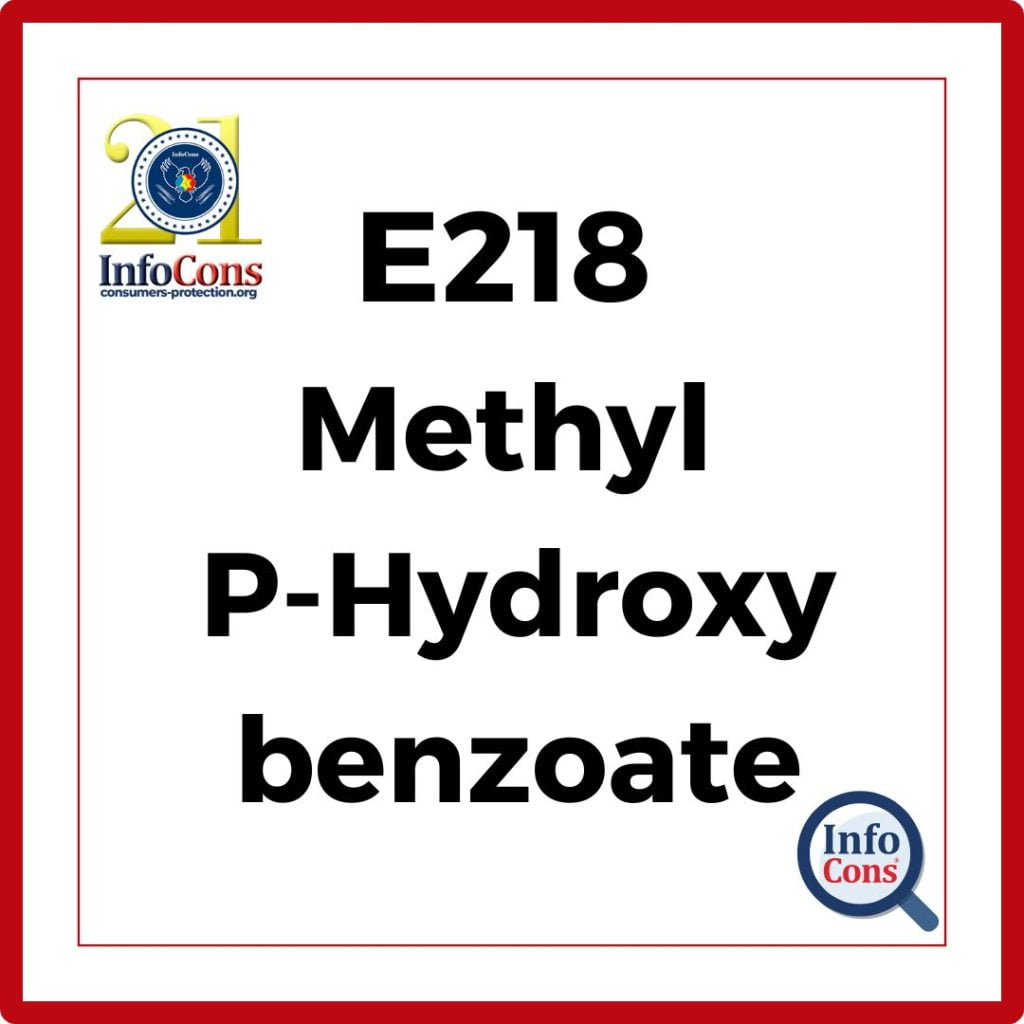What is Food Additive E218 ?
E218, known as Methyl P-Hydroxybenzoate, is a food additive in the category of chemical preservatives. It is a derivative of benzoic acid, E 210. Although it is sparingly soluble, it is found in many food and cosmetic products. As a widely used preservative, it helps extend the shelf life of products and prevents the growth of harmful microorganisms.
E218 is a type of paraben, which is a class of chemicals primarily used as preservatives. Its chemical structure is CH3(C6H4(OH)COO). It appears as a white crystalline powder and is known for its antibacterial and antifungal properties, making it a valuable additive in various industries.
What Do Food Labels Reveal ? Why Is It Important to Read Them Carefully ? InfoCons Consumer Protection informs you !
What is the Recommended Daily Dose ?
The safety of E 218 has been extensively studied and it is generally recognized as a safe food additive by the European Food Safety Authority (EFSA). The maximum acceptable daily intake for E218 has been established at 10 mg per kg body weight per day.
Researchers are constantly looking for new preservation methods, including advanced packaging technologies and the development of new chemical preservatives.
In Which Products is the E218 Additive Found ? InfoCons Consumer Protection informs you !
- Food Preservation: E218 is commonly used in the food industry to extend the shelf life of products. It is effective against a wide range of microorganisms, including bacteria, yeasts, and molds. It can be found in products such as baked goods, beverages, dairy products, and sauces.
- Cosmetics and Personal Care Products: In the cosmetics industry, E218 is a basic preservative in a variety of products such as creams, lotions, shampoos, and deodorants. Its antimicrobial properties help maintain the integrity of these products by preventing microbial contamination and spoilage.
- Pharmaceuticals: E218 is also used in pharmaceutical products to preserve the effectiveness of medications. It can be found in topical medications, injectables, and oral pharmaceuticals, where it prevents microbial growth that could compromise the safety and effectiveness of the product.
- Industrial Applications: In addition to its use in food and personal care products, E 218 is used in other industries, including textiles and adhesives, where it serves as a preservative to prevent microbial degradation.
Read also – Expert Q&A : The Impact of Ultra-Processed Foods on Health . InfoCons Consumer Protection recommendation
Contraindications and Risks
Despite its widespread use, E218 has been the subject of controversy, particularly regarding its health impact.
- Endocrine Disruption: There is potential for it to act as an endocrine disruptor. Some studies suggest that parabens, including E218, can mimic estrogen and disrupt hormonal functions, which can lead to reproductive issues and other health problems.
- Allergic Reactions: E218 can cause allergic reactions in some individuals, particularly those with sensitive skin. Symptoms can include skin irritation, redness, and itching. People with known sensitivity to parabens are often advised to avoid products containing E 218.
Given the concerns about E218 and other parabens, there has been increasing interest in finding alternative preservatives. Natural preservatives such as rosemary extract, grapefruit seed extract, and certain essential oils are gaining popularity. These alternatives are perceived as safer and more eco-friendly, although they may not always provide the same level of antimicrobial protection as synthetic preservatives.
In conclusion, E218, or Methyl P-Hydroxybenzoate, remains a crucial component in the preservation of food, cosmetic, and pharmaceutical products. While it is generally recognized as safe and effective, ongoing research and consumer concerns continue to drive the search for safer and more sustainable alternatives. Understanding the properties and potential impact of E218 is essential for making informed decisions in product formulation and consumption.
Download the InfoCons application!
Look for products that have a cleaner label or use natural additives. By installing Consumer Protection InfoCons App and scanning the barcodes of food products, you can find out the number and type of food additives they contain.
Author – Cosmina Nițu
Master in Nutrition – Infant and new born nutrition
Sources:
https://www.efsa.europa.eu/en/ – European Food Safety Authority (EFSA)
InfoCons – European Organization for Consumers Protection and Promotion of Programs and Strategies , a full member of the World Organization Consumers International, founding member of the Federation of Consumer Associations, and member of ANEC.
